By clicking a retailer link you consent to third-party cookies that track your onward journey. This enables W? to receive an affiliate commission if you make a purchase, which supports our mission to be the UK's consumer champion.
Best places to buy glasses

In this article
- Best places to buy glasses on the high street
- Buying glasses vs getting an eye test
- Buying glasses in store: expert tips from opticians
- How to get the best value glasses
- Best places to buy glasses online
- Can you get cheap prescription glasses online?
- 4 tips for buying glasses online
- Lens options explained
Our opticians customer survey uses insights from thousands of customers to uncover the best places to buy your glasses.
We asked more than 8,000 people who had bought glasses in store recently to rate their experiences and tell us how happy they were with the glasses they bought.
Brands were rated on the price, value and quality of their glasses range, as well as customer service, after sales service and store environment.
Best places to buy glasses on the high street
| Brand | Customer score | Customer service | Price of glasses | Quality of glasses | Visual acuity of glasses | Value for money | Store environment | After sales service |
|---|---|---|---|---|---|---|---|---|
| Asda Opticians | Sign up to reveal Get instant access to this and all our scores and recommendations Unlock tableDigital £8.99 per month, cancel any time. Already a member? Log in | |||||||
| Bayfields | ||||||||
| Boots Opticians | ||||||||
| Costco Optical | ||||||||
| Independent | ||||||||
| Leightons | ||||||||
| M&S Opticians | ||||||||
| Optical Express | ||||||||
| Scrivens | ||||||||
| Specsavers | ||||||||
| Vision Express | ||||||||
Sign up to reveal
Get instant access to this and all our scores and recommendations
Unlock tableDigital £8.99 per month, cancel any time.
Already a member? Log in
Table notes: Based on an online survey of 8,081 Which? members and members of the public between May and June 2024 who had bought glasses in store in the past two years. Sample sizes in brackets. Minimum sample size of 30 needed to generate a rating. n/a denotes too few responses. Customer score is based on satisfaction and likelihood to recommend. Customers also rated aspects of service; these are presented as star ratings from one to five stars.
Buying glasses vs getting an eye test
In our survey, most people told us they bought glasses where they had an eye test, which makes sense in terms of getting personalised advice from someone who is familiar with your prescription and for convenience.
But it can also be a good idea to shop around for better value. Many people don't realise that opticians are obliged to give you a copy of your prescription, which means you can take that elsewhere.
The only thing they don't have to give you is your pupillary distance measurement – which is the distance between your eyes, taken from the centre of your pupils. It’s not needed for contact lenses, but it’s crucial to ensuring that frames fit correctly.
If you want to buy your frames at another store, then check with the optician first whether they will take the measurement for you before ordering the frames.
While using different brands for buying glasses and getting your eyes tested enables you to shop around for your favourite frames, it can lead to problems if there's a dispute over an issue with glasses and who is responsible. Ask staff at your optician store how this would work so you're armed with the information you need before deciding.
Are the best brands for buying glasses also the best option for getting an eye test? See our breakdown of the top-rated brands for eye tests, and the best and worst opticians brands overall
Buying glasses in store: expert tips from opticians

Our expert opticians recommend the following when you're deciding where to buy your specs and figuring out what you can afford:
- Check if there are conditions attached to a ‘free’ eye test For example, will you have to pay for it if you don’t make a purchase?
- Be upfront about your budget Most opticians make a loss on your eye test, so it’s likely that they’ll want to try and keep your custom, including finding you affordable glasses.
- Pay attention to quality and fit The mark-up on cheaper frames tends to be higher – you’ll get better value from frames if you can spend a bit more. Check for a smooth finish and sprung sides. Make sure they fit your face and are comfortable; it's good to get help from an optician on this if you aren't used to glasses or have been having any issues. Also, check they don’t fall off if you tip your head forward and that the sides are the right length for your head.
- Check if you're eligible for help from your employer Across the UK, if you use a display screen at work, you can claim the full cost of a standard test from your employer, and – if you need glasses specifically for display work – your employer should pay for a basic pair of single-vision glasses or at least subsidise some of the cost.
- Check whether a special offer gives you what you need Look out for offers, but check the terms and conditions: does it include only single-vision lenses or a limited number of frames? Will you have to pay a premium for basic coatings or high-index lenses? If you need two pairs of glasses, you could save money on a two for one deal.
How to get the best value glasses
If price is the deciding factor for you, then shop around before deciding what to buy because the cost can vary significantly.
Basic single vision frames start from around £15 at Asda Opticians and Specsavers and from around £50 at M&S Opticians. Independent opticians are likely to charge more. But before you decide where to buy, find out the cost of optional extras, too, such as anti-scratch and anti-glare lenses, and whether they're included in the basic price.
High street brands such as Boots Opticians and Vision Express will also offer deals such as buy one get one free or buy one get one half price, which can be a way handy if you want more than one pair or would benefit from a backup option.
Some people are eligible for a voucher to reduce the cost of glasses, known as NHS optical vouchers, and most opticians accept these. Eligible people include those on income support, certain complex prescription needs, under-16s and those under 18 and in full-time education.
Best places to buy glasses online
Buying online can offer savings and a bigger choice of frame styles. We asked people who had bought glasses online about their experiences, so we can bring you insights into the main online glasses brands and how people rate them.
Which? members can log in to access the full results.
Not yet a Which? member? Sign up today to see which brands excelled and which fell short. Non members will see an alphabetically ordered list of brands.
| Brand | Customer score | Ease of using the website | Overall ordering process | Overall delivery process | Price of glasses | Quality of glasses | Visual acuity of glasses | Value for money |
|---|---|---|---|---|---|---|---|---|
| Glasses Direct | Sign up to reveal Get instant access to this and all our scores and recommendations Unlock tableDigital £8.99 per month, cancel any time. Already a member? Log in | |||||||
| Goggles4U | ||||||||
| SelectSpecs | ||||||||
| Specsavers | ||||||||
| Spex4Less | ||||||||
Sign up to reveal
Get instant access to this and all our scores and recommendations
Unlock tableDigital £8.99 per month, cancel any time.
Already a member? Log in
Table notes: Based on an online survey of 677 people between May and June 2024 who had bought glasses online in the past two years. Customer score is based on satisfaction and likelihood to recommend.
Glasses Direct
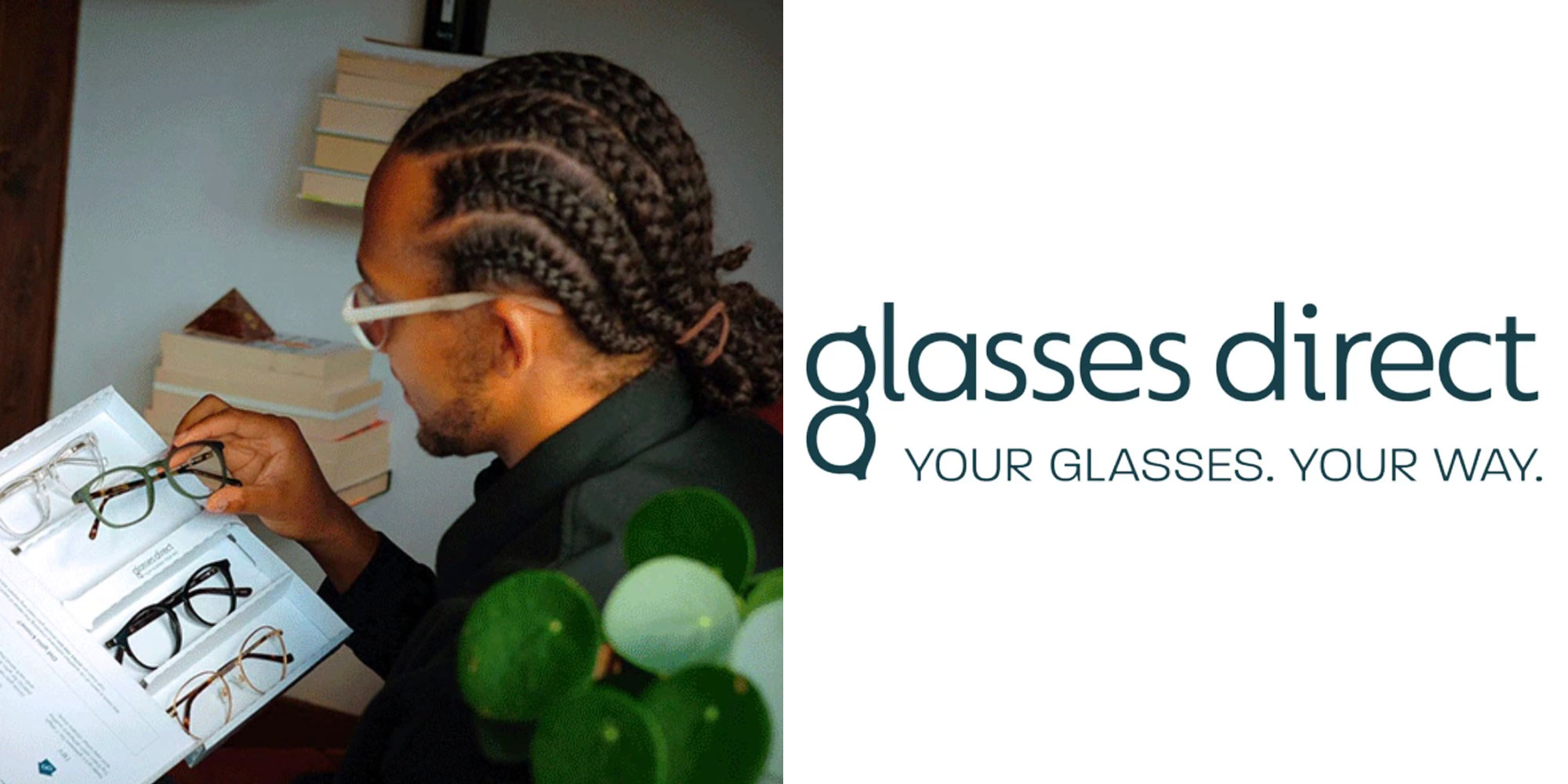
Online retailer Glasses Direct sells a wide range of frames from £15 for two pairs. It also sells designer frames from a range of brands including Gucci and Ray-Ban, and offers a 120-day returns policy.
Orders of more than £95 and designer frames are shipped free of charge. Otherwise, expect to pay £4.95 for standard delivery.
If your glasses need adjusting, the brand says on its website that you can either call for advice on how to do this yourself or post them in.
For more information, visit Glasses Direct.
Goggles4U
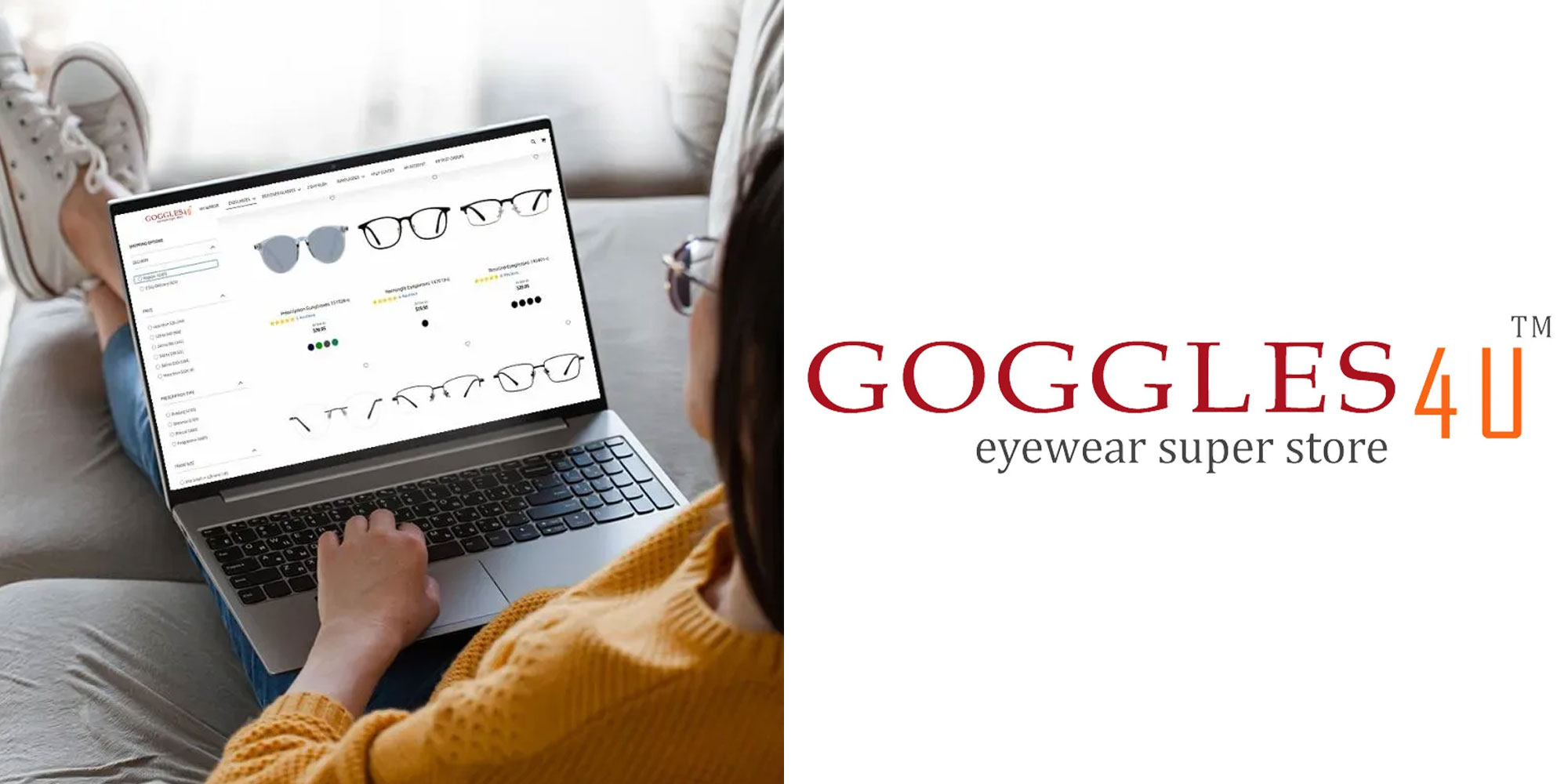
This brand offers a wide range of limited offer discounts with frames starting from £3.95. It sells a range of almost 500 glasses frames for less than £20.
Delivery times are longer than your average online retailer, though, so expect to wait between 14 and 21 days for delivery, and to pay £4.95 for UK standard delivery.
Visit Goggles 4 U for further information.
SelectSpecs
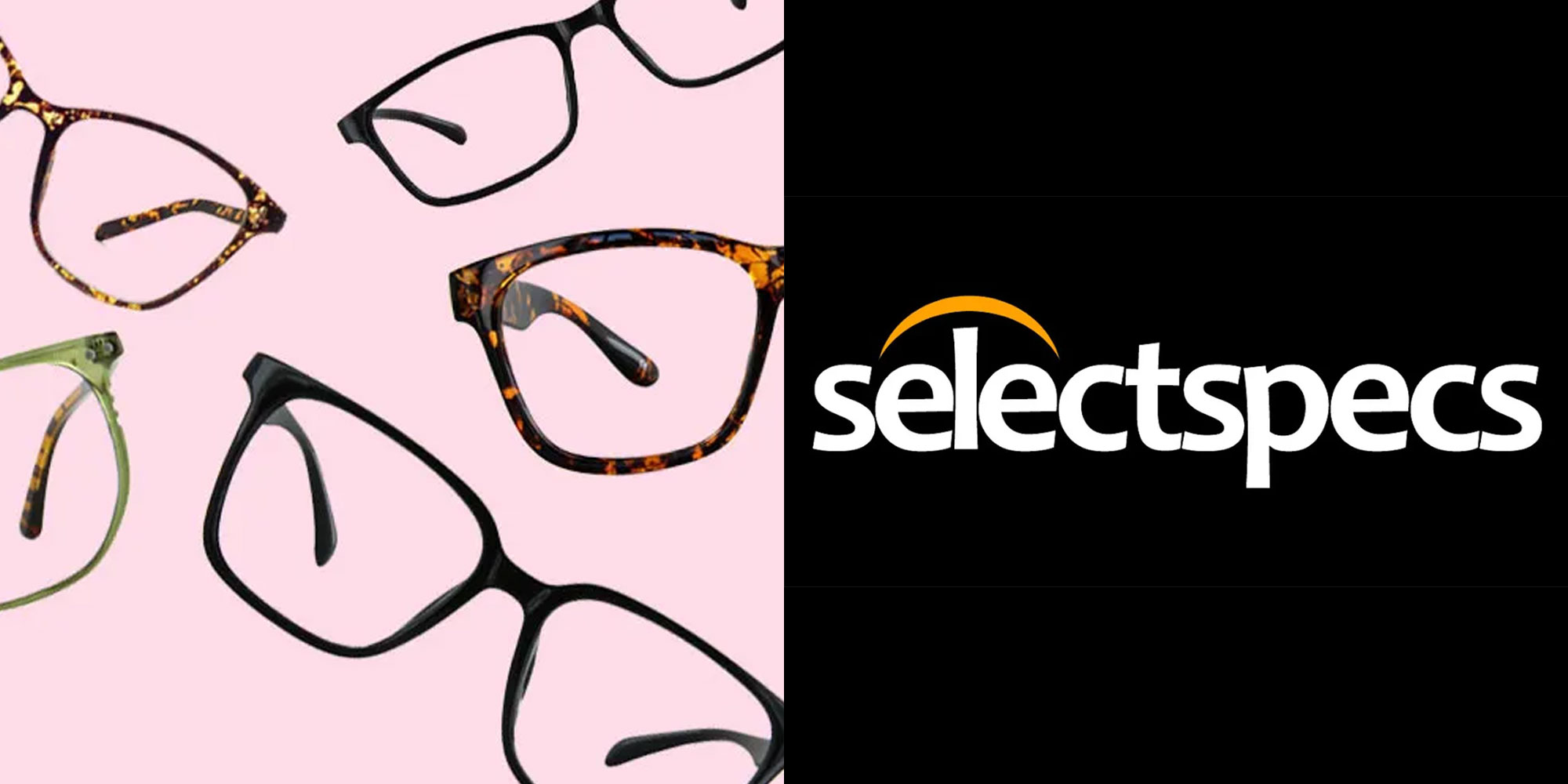
Glasses start from £6 for a basic frame, with delivery taking anywhere from next day for a basic lens to up to 21 days for complex lenses.
While frames are low-cost, delivery can add up with any online provider. Here, It's free for frames over £49, but £5.95 for standard delivery and £7.95 for next-day delivery.
Go to the SelectSpecs website for more information.
Specsavers
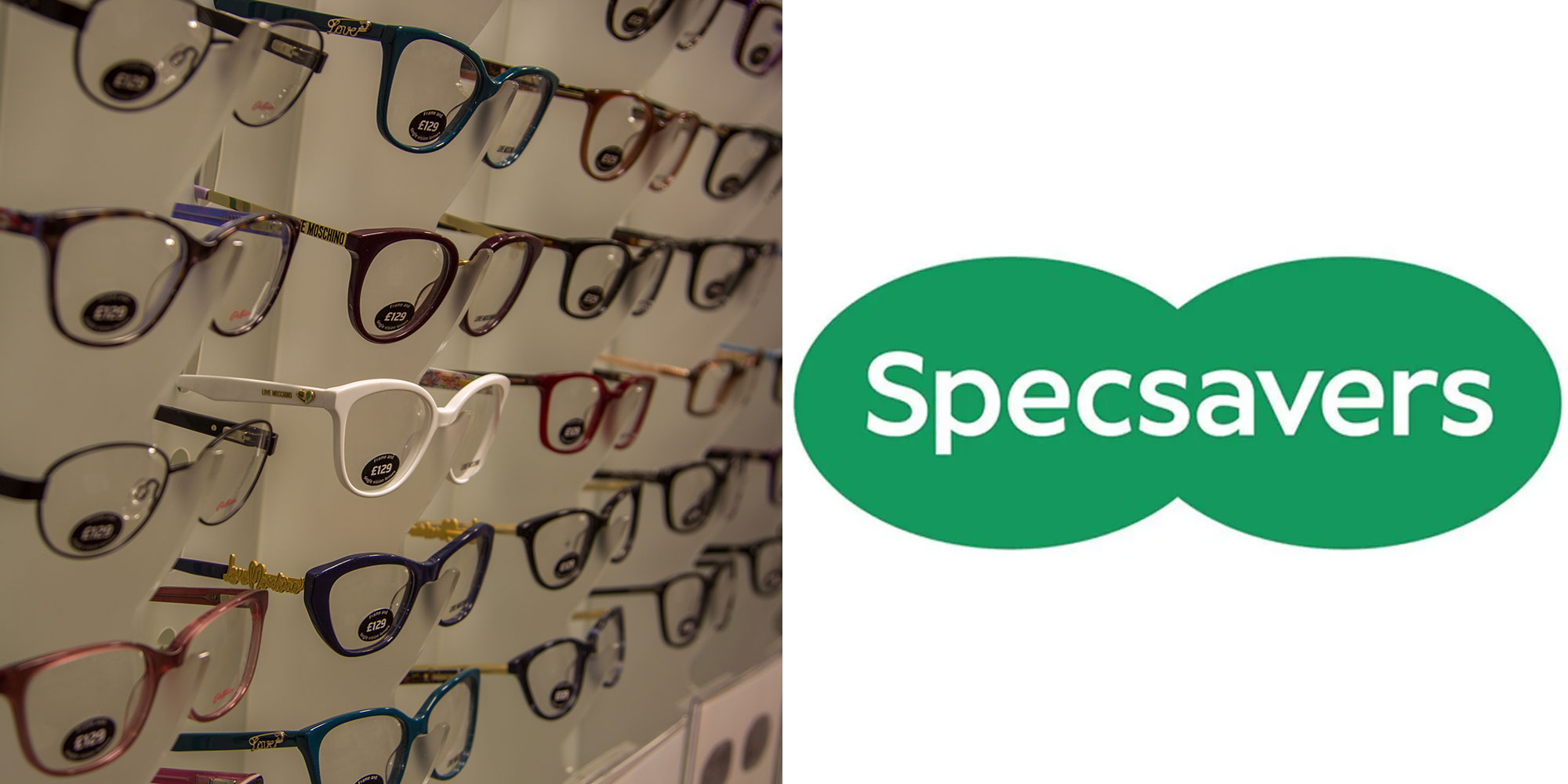
Specsavers is better known for its high street stores, but you can also order frames from £15 online.
Orders are shipped within 10 working days. The delivery is free on frames £70 and above or £3.50 for cheaper frames.
It offers a 100-day returns period and in-store servicing for frames if your glasses need tightening or adjusting.
Go to the Specsavers online store for further information.
Spex4Less
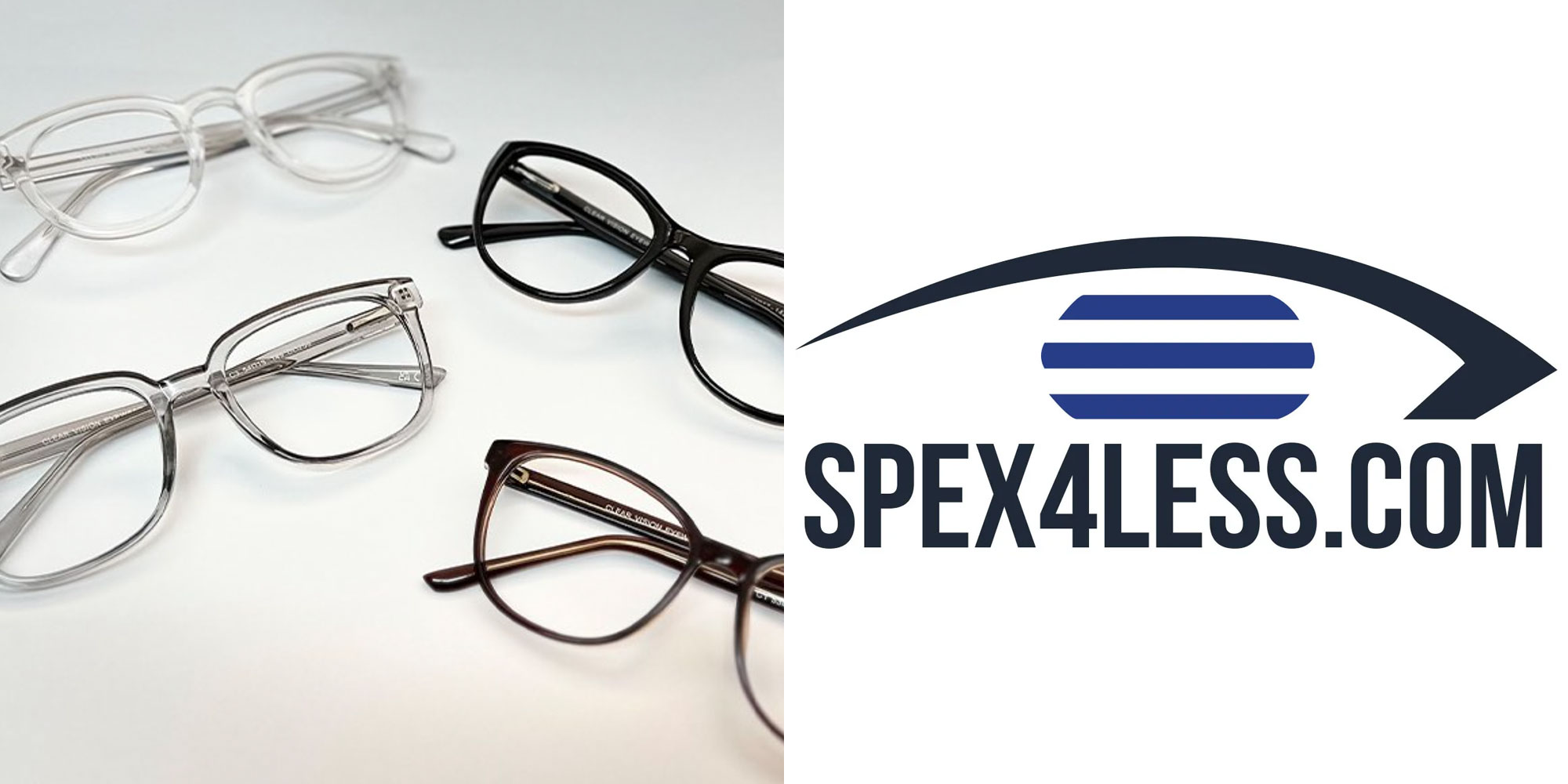
Frames start from around £10 with a 12-month frame warranty on all glasses and delivery at £4.95.
Visit the Spex4Less website for further information.
Can you get cheap prescription glasses online?

Most people shop online because they are attracted by the relatively low cost and wide range of frames. The brands in our survey scored well for visual acuity but just be aware that, if you need varifocals, fit of glasses is very important - so many people opt to buy in store where easy adjustments can be made
People tend to buy online for reasons of cost and convenience, and our research shows that this can be a good option for people with more simple prescriptions.
More care is needed if you have a complex prescription, such as higher-strength lenses or varifocals. This is because getting specific measurements to make sure the frames fit and lenses are positioned correctly in front of your eyes is of paramount importance.
That said, most of the brands featured in our survey did get good scores for the visual acuity of the glasses and customer service should anything go wrong.
Costs can seem temptingly low, but as with buying any glasses, make sure you factor in the cost of added extras such as anti-glare, anti-scratch or thinner lenses.
And don't forget about delivery costs, too.
4 tips for buying glasses online

1. Ensure that you have the right measurements to hand
If you want to buy glasses online, you'll need your prescription as well as your pupillary distance, which you might need to take yourself.
Opticians are obliged to give you a copy of your prescription, but not pupillary distance, which helps position your pupils accurately in the centre of the lenses. It’s especially important for higher-strength prescriptions and varifocals because a measurement more than a couple of millimetres out could make the glasses unusable.
Online glasses brands will give you tips on how to take your own pupillary distance, but make sure you double-check it as it can be a bit fiddly.
For added reassurance, you can also pick websites that send you a selection of frames to try on at home.
2. Choose the right lenses
If you’ve got a high prescription, you should opt for high-index (thinner) lenses when buying online as they’re more likely to work with a range of frames.
As a rule of thumb, if your prescription is stronger than +/- 3 but less than +/- 5, consider thinner lenses (around 1.67 index). If your prescription is stronger than +/- 5, you may want to go even thinner (around 1.74 index). The cost of thinner lenses can add to the overall cost, so be sure to calculate everything before committing.
3. Get the right frames
It’s not necessarily easy when shopping online to know which frames will suit your prescription (as above) or fit properly.
Some sites offer a free try-at-home service. This can be a good way to make up for the lack of in-person fitting advice and lets you take time to decide what fit/style works for you.
4. Know your rights
Glasses made to a prescription are likely to be classed as a personalised item under the Consumer Rights Act, but if the goods you buy are faulty you still have the same rights as you have when buying face-to-face.
Any terms and conditions that say you must cover the cost of returning an item don't apply where the goods being returned are faulty.
When you buy goods online, you have additional rights to return them. This is because your decision may be based on a brief description or a photograph – so what you receive isn't always quite what you’d expected.
The Consumer Contracts Regulations give you 14 calendar days from the day after you receive your goods to cancel. See our Consumer Rights section for more information.
Lens options explained

- Single-vision lenses have one prescription throughout the lens.
- Reading glasses tailor single-vision glasses to your reading distance.
- Enhanced reading glasses work at two reading distances, such as your book (close up) and computer (further away).
- Varifocal lenses combine far-distance, intermediate and close-up vision if you don’t want multiple pairs. There's no visible line in the lens as there is in bifocal lenses.
When choosing your frames there are a number of added extras you can opt for. Some of the most popular ones are below, but ask your optician what they offer and what they recommend for your specific circumstances.
It's also worth checking what added extras come as standard, as some brands are more generous than others when it comes to what's included in the cost of basic frames.
- Anti-scratch Increases lens durability. This hard, thin resin coating comes as standard with some regular lenses or with an anti-reflection coating.
- Anti-reflection Reduces image ghosting, makes your eyes more visible and lets more light through, but the key disadvantage is that smudges are also more visible.
Especially useful for high-index lenses and driving at night. - Sun tint and UV Can soften harsh lights, relieve eye strain and protect your eyes from UV rays.
- Super hydrophobic Makes your lenses extra water repellent.
- Extra-thin lenses Can improve the appearance of your lenses if you have a complex prescription.
Considering laser eye surgery? We reveal typical costs and explain why you need to be wary of marketing claims
How we uncovered the best places to buy glasses
Our biannual opticians brand survey is the result of months of research and number crunching and is designed to build a thorough and statistically robust insight into the performance of different opticians brands, as rated by real customers who have used their services.
To find the best places to buy glasses, we quizzed more than 8,000 people who bought glasses in-store and nearly 700 who bought online to get their verdict on the brands they'd used.
Our expert statisticians then analysed the results, using them to produce an overall customer score and ratings for different factors such as price, quality of the glasses and how accurate they are to make it easy for you to see which brands excel.